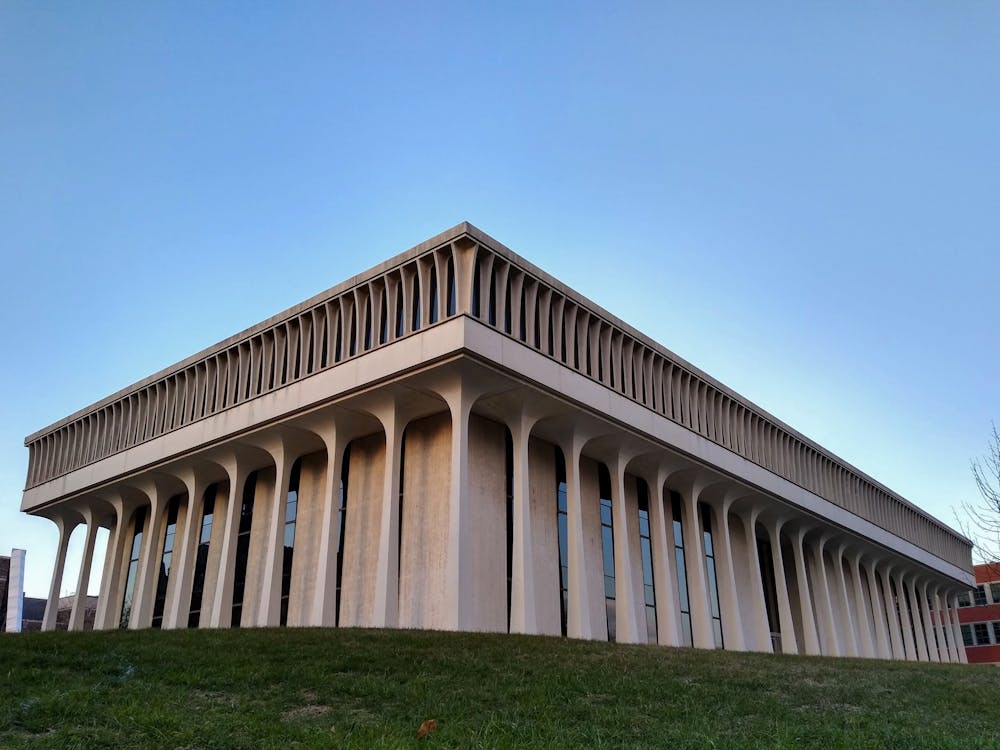Last month, the Atlantic published an article examining the question of whether Princeton should exist. Atlantic staff writer Emma Green interviewed President Christopher Eisgruber ’83, probing him about Princeton’s role and responsibilities as an educational institution, both in the past and the present. The issues of racism and inequality discussed in the interview are extremely important. But I do not believe that asking “should Princeton exist?” is the most effective way of addressing them.
The phrasing of the question suggests there is some cause for the erasure of Princeton. It implies that Princeton’s tainted history could be grounds for the total elimination of the institution, that its transgressions completely de-legitimize its existence. While Princeton’s racist and wrongful history should most definitely be confronted and addressed, terminating the institution may not be the best way to do so. That type of decision faintly echoes the sentiment of cancel culture; if you make a mistake, you are unseated rather than given an opportunity to learn from it, reform, and redeem yourself.
If our ultimate goal is to form a just and inclusive society, we ought to grant people and institutions room for error. When people and institutions can afford to make mistakes, the lessons they take away can be incredibly transformative, ideally triggering a shift in mindset so that not only is the mistake addressed, but the harmful ideology behind it is, too. However, if our response to error is to eradicate all erring bodies, the individual offenses will be called out, but the ideological root of these errors will not be addressed properly.
Princeton exists, and Princeton’s history is marred with social injustice. But if tomorrow Princeton ceased to exist, I do not believe we would be properly addressing these injustices. Instead, they would just vanish, since the institution that created them would be disbanded. Under such circumstances, there would be no course for redress as the establishment at fault would have disappeared. In this context, there would be no way to meaningfully hold Princeton accountable for its racist actions.
At points Green invokes this sentiment, asking Eisgruber what is the “best way to not just debate about names on buildings, but actually address Princeton’s role in perpetuating systems of racism.” The School of Public and International Affairs is a wonderful example of the tension between engaging with injustices on and beneath the surface. The renaming of the former Woodrow Wilson School to the Princeton School of Public and International Affairs, owing to President Wilson’s racist past, bore great significance, as discussed in the article. Eisgruber notes that harmful symbols and names can play a role in making “students feel less like this campus is a place where I really count.”
By renaming the school, Princeton took a step in the right direction, removing a name that, at its worst, stood as a threat to students. However, as important as this decision was, to properly address the issue at hand — Princeton’s racist history — we need to do more than just rename schools. We need to address the wrongful behaviors and attitudes held by the people behind these names. This can take place in many ways: we can start by diversifying both the school and its curriculum and reforming vestiges of systemic racism within our school. It is these more expansive efforts that ultimately promote an anti-racist attitude and will help the school confront its fraught history. If we do not engage in these efforts, the removal of particular names rings hollow; it is imperative that we not only talk the talk but also walk the walk.
By asking if Princeton should exist, we miss the mark, promoting a model of eradicating racist institutions rather than encouraging reflection and reform within these institutions so we can promote anti-racist ideologies. Rather than asking whether Princeton should exist, I think the more appropriate question to ask would be: how can Princeton exist in a just and equitable way?
Ava Milberg is a sophomore from New York City. She can be reached at amilberg@princeton.edu.








